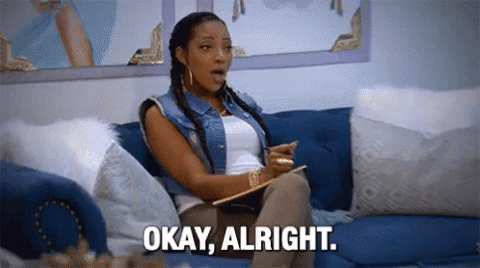We all know it's essential to customize your cover letter for every job. But it's the unique, "aha moment" extras that will send your application to the top of the pile.
Many people assume that simply submitting a resume for a job application will be enough to get them the interview. In a fantasy world, this would be true. In reality, there’s much more to it.
Nowadays, it’s even more important to stand out amongst the candidate crowd thanks to a highly competitive job market. Your resume is a summary of your experience and what you have accomplished at past jobs. Your cover letter is your singular chance to make a great first impression. It’s your story. It’s your voice. And, if you write a really good one, your chances of securing that first interview are much higher!

In my opinion, there are just too many cover letters out there that follow the cookie-cutter format and, thus, don’t really say much about the applicant’s true character. A cover letter that falls flat isn’t going to help your chances of rising to the top of the resume pile.
Writing a unique, thoughtful cover letter takes time and energy, but it's worth the investment.
1. Don't just personalize based on the job description - dig deeper
Personalizing your cover letter means you took the time to do adequate research on the company and position. Put yourself in the employer’s shoes: if you received a cover letter that was addressed “To Whom It May Concern,” wouldn't you think that the applicant didn't spend the time researching the proper addressee?
Most job descriptions don't include the name of the hiring person (unless you luck out and the email address is a giveaway). Still, do your research to find an HR contact at the company. Try browsing the website team page, LinkedIn, and even social media. If you strike out, it's still better to say “Dear [company name] team” or “Dear [company name] hiring manager.”
Not only should you personalize your recipient, but you also should personalize your skills and qualifications according to the position you are applying for. Frame them in a relevant way that accentuates why you will excel in the new role. If you’re applying for a writing position, talk about how not only your writing experience but your other skills relate to creating, editing, or publishing written works. If you’re applying for a sales position, tailor your cover letter to talk about your people skills and your powers of persuasion.
BOTTOM LINE: Employers don’t want to read a cover letter that isn’t relevant to the position they are hiring for, so make it obvious why your skills are a great fit.
2. Tell your unique story - and tell it well
Your cover letter is your one chance to tell a potential employer who you are. Just as in an ad campaign, the best way to sell yourself is a great story. Think of something unique that will catch their eye. How do your career and passions come together in an intriguing narrative?
The most important thing to keep in mind when writing your story, though, is honesty. Imagine that awkward moment when your interviewer asks you about your fluency in French when the closest thing to “French” that you’ve experienced is of the fried variety. Feel free to paint a glowing picture—just not a false one.
BOTTOM LINE: Take the time to really think about how you want to frame your story in a way that truly reflects your character.

3. Show that you did your homework
Want to show the company you really care? Before you write your cover letter, look closely at the mission and culture of the company, as well as information about the company’s history.
Pick out a couple of really cool things you like about the company and illustrate that in your cover letter. For instance, have you used their app or bought something from their online store? Great! Tell them about your customer experience, and why it encouraged you to join the team.
BOTTOM LINE: The key is to find a way to show your true personality and demonstrate some extra research in just a few paragraphs.
4. Get rid of the spelling and grammar mistakes
This pretty much speaks for itself. Always make sure you proofread your work. Even if you think it’s perfect, it never hurts to have a friend or family member look it over one more time. Who knows—they may catch a spelling or grammar mistake that you’ve been reading over for days. Many employers won’t even continue reading your cover letter if they spot a mistake, and that includes grammar. It's easy to hit spellcheck, but even if you're not a great writer, there are tools to help catch those dropped commas or odd phrases. Try Grammarly.
BOTTOM LINE: Help your thoughtful cover letter avoid the trash can by taking the time to proofread. Trust me, you’ll be happy you did!
5. Don't oversell yourself and don't say "I'd be a perfect fit"
Some people operate under the assumption that bragging about their previous experience will help them get the job. While it’s OK to talk about your strengths and experience in your cover letter, do so in a humble way. One way to avoid sounding arrogant is to rephrase your sentences that start with “I” (there are going to be a lot of those!) to reflect the company instead. For example, “I’m extremely talented in x, y and z” versus “Your company seems like a great fit because of my background in these areas…”
Also, cover letters are littered with phrases like "I'd be the perfect fit" so why say the same thing in yours? You may be the best fit, but you're not perfect. None of us are. Instead of telling, show. Focus on the ways you can bring value to the company based on your experiences (and avoid going on about how they can help you). Being passionate yet humble is a fine line—but it's what will win them over.
BOTTOM LINE: You want to make your cover letter show that you are the best fit without overdoing it.

Whether you are applying for your first job post-college or are a job-seeking veteran, showing your true character is what makes the difference between a mediocre and excellent cover letter. The key to telling your story in a purposeful, unique, and relevant way is to put in the time and energy to come up with something that you’re proud of. A helpful way to get started with telling your story is by nailing your personal pitch. Here's a free worksheet to get you started with that, too.
*feature photo credit: Anna Nekrashevich from Pexels

